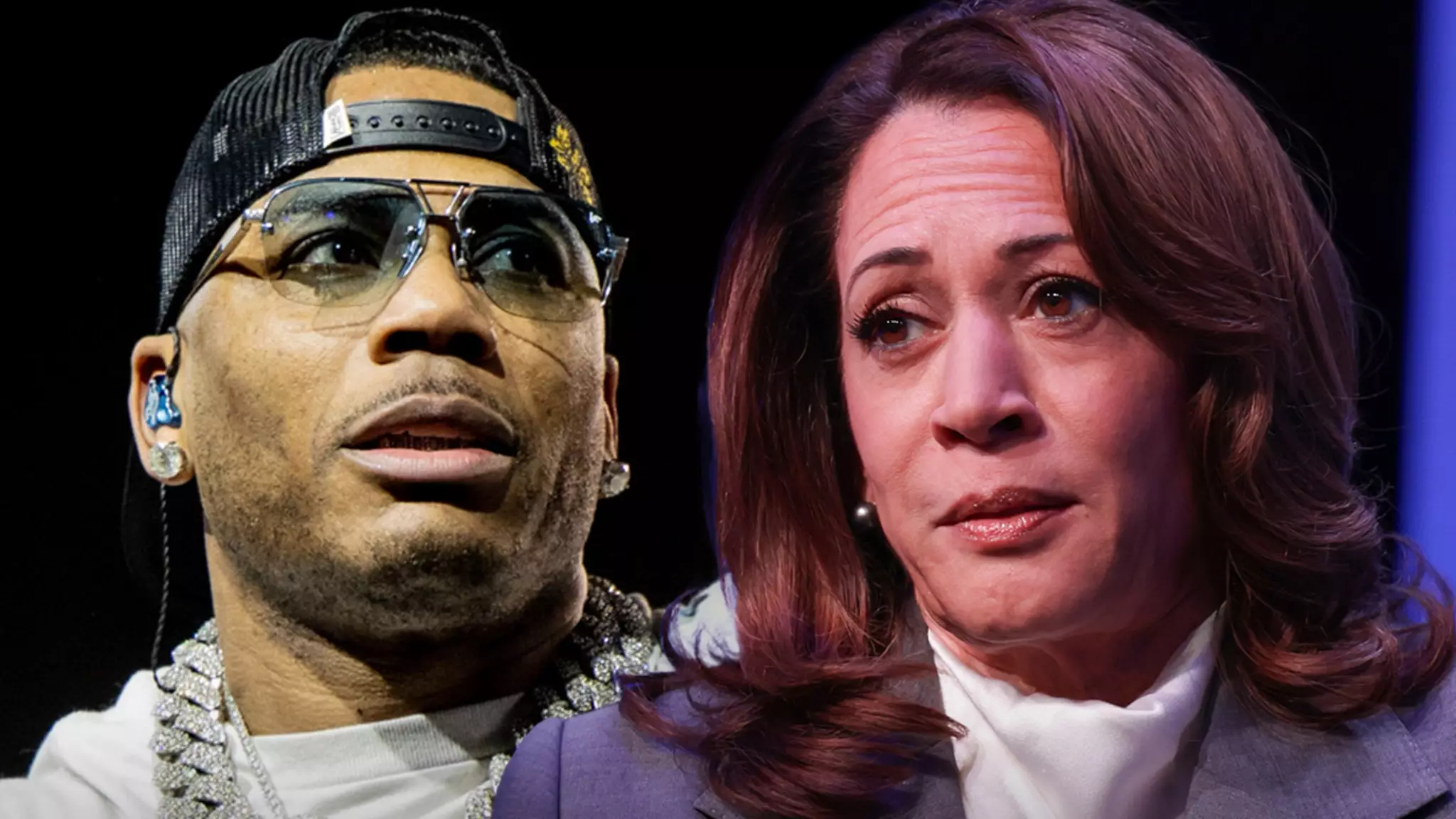Nelly’s recent actions have sparked a firestorm of controversy, fueling debates about loyalty, race, and politics within the African American community. His decision to perform at Donald Trump’s inauguration rattled many fans who viewed it as a betrayal of the Black political cause. However, Nelly’s outspoken defense of his choices exposes deeper tensions about what it truly means to support the Black community. Rather than passively accept a monolithic political stance, Nelly boldly challenges traditional alignments, insisting his financial contributions to Historically Black Colleges and Universities (HBCUs) outweigh performative political loyalty. This stance, while polarizing, pushes us to reconsider what genuine pro-Black advocacy should look like.
Complexity Beyond Partisan Labels
Nelly’s critique of Kamala Harris and her family dynamics — notably his comment about “the woman of color with the white husband and white kids” — goes beyond mere political jabs; it highlights the intricate and often uncomfortable intersection of race and identity politics. His words serve to disrupt the simplistic narratives that cast Black political figures as infallible icons. Instead, Nelly calls attention to the shades of complexity within Black representation, reminding us that political identities are multifaceted and should be scrutinized beyond party lines or symbolic ethnicity. His bluntness might alienate some, but it also encourages a more nuanced, less idolizing conversation about Black leadership.
Defending Against Intracommunity Policing
In defending both himself and Snoop Dogg against accusations of being “Uncle Tom” or worse, Nelly confronts a disturbing trend within segments of the Black community—the policing of political allegiance through racialized epithets. While such terms emerge from a justified historical context of internalized betrayal, their current overuse risks diluting meaningful discourse and fostering division rather than solidarity. Nelly’s refusal to back down underscores a critical issue: the peril of enforcing conformity at the cost of stifling diverse viewpoints. His pointed reminder that he’s “not the Black prosecutor responsible for stamping countless Black men with a criminal record” also underscores a painful reality — complicity exists in many forms, and political allegiance should not serve as the sole litmus test of racial fidelity.
Monetizing Division or Sparking Necessary Dialogue?
The drama surrounding Nelly’s stance reached new peaks in the latest episode of “We Belong Together,” where family tensions spilled into public view, notably with Ashanti’s mother criticizing his political choices. The fact that this controversy reportedly generated over $1 million in revenue exposes the commodification of political and cultural conflict in entertainment. While cynics might see Nelly’s moves as opportunistic, it’s worth questioning whether these clashes are merely divisive spectacles or if they inadvertently create platforms for more raw, honest conversations about Black identity, political expectations, and economic realities. Either way, Nelly’s willingness to court controversy reflects a knowing engagement with the intersection of activism, art, and capitalism in today’s media landscape.
The Challenge of Authenticity in Today’s Black Political Landscape
Ultimately, Nelly’s outspoken positions underscore the difficulty of navigating authenticity within Black political discourse. His challenge to the dominant Democratic paradigm—and his refusal to toe a party line—force us to confront the uncomfortable truth that no single political figure or ideology has a monopoly on Black progress. This discomfort is essential to breaking away from tribalistic thinking and fostering a political culture more inclusive of differing tactics and ideas. Whether one agrees with Nelly or not, his unapologetic stance encourages a reevaluation of what it means to be an ally, a leader, or an advocate in a community as diverse and politically varied as the African American one.

